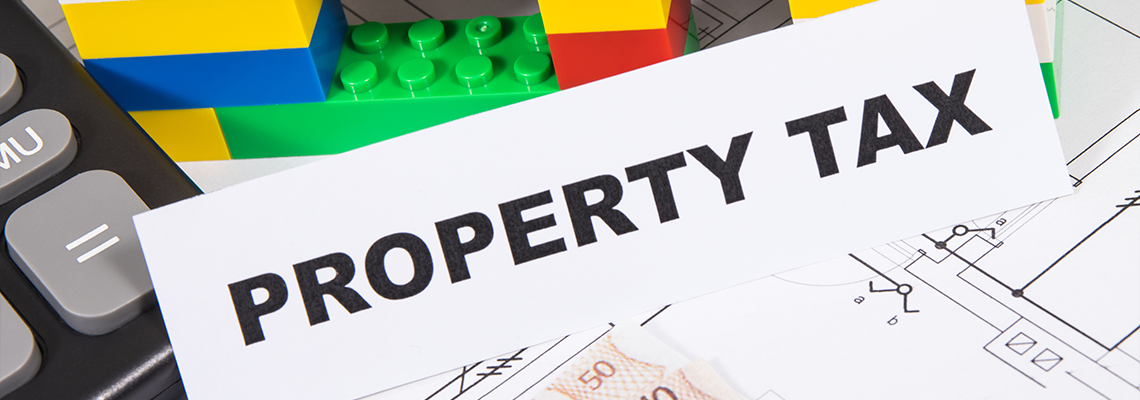
Texas property owners may see a "MUD tax" on their statements. This Municipal Utility District tax helps fund services and infrastructure in many communities, especially in fast-growing areas outside city limits, though understanding its impact on overall property tax can be challenging.
Property owners quite often have questions about MUD taxes since they are differ in there scope and purpose from traditional property taxes. Still, these taxes provide vital utilities and services to residential developments, especially in areas where municipal services aren't available. How these taxes are calculated and applied can significantly impact your total property tax burden.
Understanding the relationship between MUD taxes and your regular property taxes can help you make informed decisions about property ownership and potentially identify opportunities for tax relief. Let's examine how these taxes work, what they fund, and how they fit into the broader picture of Texas property tax law.
What Are Municipal Utility Districts (MUDs)?
Municipal Utility Districts are governmental entities created under Texas state law to provide essential community services. They emerged as a solution to support development in areas outside established cities where traditional municipal services weren't available. They operate under specific state laws concerning property taxes and have the authority to levy taxes and issue bonds.
MUDs typically form when developers need to create infrastructure for new residential communities. They work through a structured process involving the Texas Commission on Environmental Quality (TCEQ) approval. Each district operates independently, with its board of directors making tax rates, services, and infrastructure decisions.
The main purpose of these districts is to provide water, sewage, and drainage to people within their boundaries. However, MUDs may also offer services like road maintenance, parks, and recreational facilities. They’re especially common in suburban areas around major Texas cities like Houston, Dallas, and Austin, where rapid growth has driven residential development outside city limits.
These districts play a vital role in Texas's development strategy, allowing for controlled growth in areas where cities might not be ready or able to extend their services. By issuing bonds and levying taxes, MUDs can fund necessary infrastructure improvements without placing the financial burden directly on cities or counties.
How MUD Taxes Work
MUD taxes are a separate component of your overall property tax obligation in Texas. You'll see these charges listed separately when you receive your annual tax statement. The MUD's board of directors sets the tax rate annually based on the district's financial needs and obligations.
The calculation of MUD taxes follows a process similar to other taxing jurisdictions. The district sets a rate per $100 of assessed property value, which can change yearly depending on various factors. These factors include:
Infrastructure needs: The cost of maintaining and upgrading existing water and sewage systems within the district.
Bond obligations: Payments required to service debt from infrastructure development bonds.
Operating expenses: Day-to-day costs of running the utility systems and providing services to residents.
Your total MUD tax obligation depends on the district's tax rate and your property's assessed value. It's important to note that these taxes can vary significantly between different MUDs, even within the same general area. Some districts might have higher rates due to newer infrastructure needs or bond repayment requirements
Common Services Funded by MUD Taxes
Understanding what your MUD taxes fund can help you appreciate their role in maintaining your community's infrastructure and services. These districts provide essential services that directly impact your daily life and property value. Here are the primary services typically funded by MUD taxes:
Water infrastructure: Construction and maintenance of water treatment facilities, storage tanks, and distribution systems that provide clean water to homes.
Wastewater management: Development and upkeep of sewage collection systems, treatment plants, and related infrastructure.
Drainage systems: Installation and maintenance of storm drains, detention ponds, and other flood prevention measures.
The services provided by MUDs are essential for maintaining public health and safety while supporting property values in the district. Without these services, residential development in many areas of Texas wouldn't be possible.
These districts must maintain transparency about how they use tax revenue, with regular audits and public meetings where residents can learn more about district operations and planned improvements. This oversight helps make sure funds are used appropriately and efficiently.
MUD Taxes and New Development
The relationship between MUD taxes and new development in Texas illustrates an important aspect of property tax law. When developers plan new communities outside city limits, they often rely on MUDs to finance the necessary infrastructure. This process typically follows several stages.
Initially, developers advance the costs of installing utilities and other infrastructure. The MUD then issues bonds to reimburse the developer for these costs. These bonds are gradually paid off through the taxes collected from property owners within the district, which explains why newer MUDs often have higher tax rates than older, more established districts.
As communities mature and more homes are built, the tax burden typically spreads across a larger number of properties. This can lead to lower individual tax rates over time, particularly once initial infrastructure bonds are paid off. However, the timeline for rate reductions can vary significantly depending on factors such as development pace and infrastructure maintenance needs.
Impact on Property Values
MUD taxes can significantly influence property values in Texas communities. While these additional taxes might seem like a drawback, the services and infrastructure they fund often contribute positively to property values. This creates an interesting dynamic within Texas property tax law.
Properties with access to reliable utilities and well-maintained infrastructure typically maintain their value better than those without such services. The presence of a functioning MUD can signal to potential buyers that a community has stable access to essential services and a plan for long-term maintenance and improvements.
However, it's important to consider the total tax burden when evaluating property purchases. Different MUDs can have varying tax rates, and these differences should factor into your decision-making process. We often advise clients to research MUD tax rates and the district's financial health before making property investments.
Rights and Responsibilities of Property Owners
Property owners within MUDs have specific rights and responsibilities under Texas property tax law. Understanding these can help you actively participate in your district's governance and potentially influence decisions that affect your tax rates.
Voting rights: Property owners can vote in MUD board elections and on certain bond issues that affect tax rates.
Public participation: Residents can attend board meetings and provide input on district decisions and priorities.
Tax protections: Property owners maintain the right to protest their property valuations and seek clarification on tax calculations.
These rights come with the responsibility to stay informed about district operations and participate in important decisions. Active engagement from property owners helps districts operate more effectively and responsively to community needs.
Being aware of your rights and exercising them appropriately can help you better understand and potentially influence how your tax dollars are used. Many property owners find that participating in district governance gives them valuable insight into their community's development and financial management.
Get Professional Help With Your Property Taxes
If you're looking for guidance on property tax matters, including questions about MUD taxes, we can help. Our experience with Texas property tax law allows us to offer informed advice tailored to your situation. We serve clients throughout Texas including Houston, Texas. Contact Michael Saegert, Attorney at Law today to discuss your property tax concerns and learn how we can assist you.



